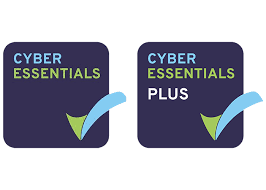Cyber security is one of the most important foundations of modern business. It protects your systems, data, employees, and customers from cyber threats like hacking, ransomware, phishing, and data breaches.
In this article, we explain what cyber security is, how it works, why it matters, and how businesses can put the right protections in place.
What is cyber security?
Cyber security refers to the tools, processes, technologies, and best practices used to protect computer systems, networks, devices, and data from unauthorised access, attack, damage, or theft.
It covers everything from antivirus software on your laptop to firewalls, secure cloud systems, employee training, and incident response plans.
How does cyber security work?
Cyber security works by creating layers of protection around your technology, so that if one layer is breached, others can still protect your systems. Here’s a breakdown:
1. Prevention
Prevention focuses on stopping attacks before they happen.
- Firewalls → Control incoming and outgoing network traffic
- Antivirus & anti-malware → Detect and block known threats
- Multi-factor authentication (MFA) → Adds an extra layer of login security
- Software updates & patching → Fix known security vulnerabilities
- Strong passwords & password management → Reduce the risk of account compromise
2. Detection
No system is 100% bulletproof, so detection tools help spot suspicious activity early.
- Intrusion detection systems (IDS) → Monitor networks for unusual activity
- Endpoint detection & response (EDR) → Monitor laptops, desktops, and mobile devices
- Security information & event management (SIEM) → Combine and analyse security data across systems
3. Response
When an incident happens, a quick and effective response is key.
- Incident response plans → Pre-defined steps to contain and remediate attacks
- Backups & disaster recovery → Restore data and systems after a cyber attack
- Cyber insurance → Help recover from financial and reputational damage
4. People and training
Technology alone isn’t enough — employee awareness is critical.
- Phishing awareness training → Teach staff how to spot malicious emails
- Secure working practices → Promote safe use of passwords, devices, and cloud systems
- Clear policies → Define acceptable use, data handling, and reporting procedures
Why is cyber security important?
- Protects sensitive data → Prevents theft of personal, financial, or customer data
- Prevents financial loss → Stops ransomware, fraud, and operational disruption
- Maintains reputation and trust → Customers expect secure services
- Ensures compliance → Helps meet legal and regulatory requirements (like GDPR)
- Supports business continuity → Reduces downtime after a cyber incident
Common cyber threats
Understanding the main threats helps you prepare.
- Phishing → Fraudulent emails tricking users into revealing information
- Ransomware → Malware that locks data and demands payment
- Malware → Malicious software that damages systems or steals data
- Brute force attacks → Automated attempts to crack passwords
- Insider threats → Employees or contractors misusing access
How can businesses improve cyber security?
- Conduct regular risk assessments
- Implement multi-factor authentication across systems
- Keep all software and hardware up to date
- Use endpoint security and advanced threat protection
- Provide ongoing cyber security awareness training for staff
- Work with a trusted IT provider or Managed Security Services Provider (MSSP)
- Develop an incident response and disaster recovery plan
Summary
Cyber security works by combining prevention, detection, and response — with both technology and people playing a role. For businesses, investing in strong cyber security is no longer optional; it’s essential for protecting data, maintaining trust, and staying compliant.
If you want expert help improving your business’s cyber security, contact us — we’d be happy to assess your needs and recommend the right solutions.
Frequently Asked Questions (FAQs)
What are the key components of cyber security?
Prevention, detection, response, and people. This includes firewalls, antivirus, MFA, monitoring tools, backups, and employee training.
How can I tell if my business is at risk?
All businesses face cyber risks, regardless of size. Common signs of vulnerability include outdated software, weak passwords, no multi-factor authentication, and lack of staff training.
What is the biggest cyber security threat today?
Phishing and ransomware are among the most common and damaging threats, particularly for small and medium businesses.
How much does cyber security cost?
Costs vary depending on business size and needs, but the price of prevention is usually far less than the cost of recovering from a cyber attack.
Do small businesses need cyber security?
Absolutely. Small businesses are often seen as easy targets by cybercriminals because they may have weaker defences.
How often should we review our cyber security?
At least annually, or whenever there are significant business or technology changes.
Can I outsource cyber security?
Yes — many businesses use a Managed Security Services Provider (MSSP) or IT partner to manage security, monitoring, and incident response.



